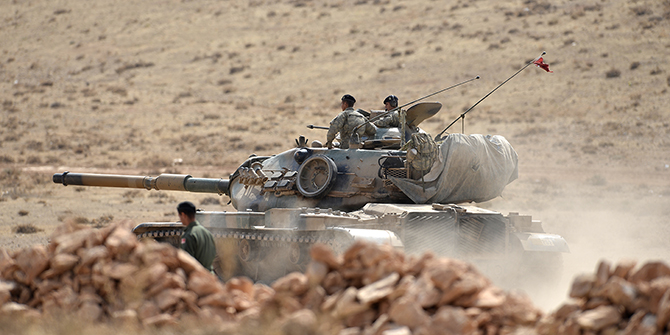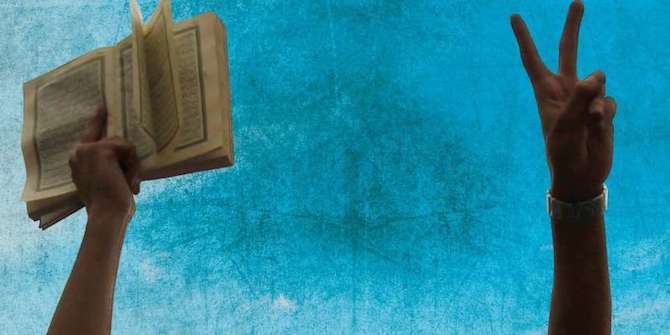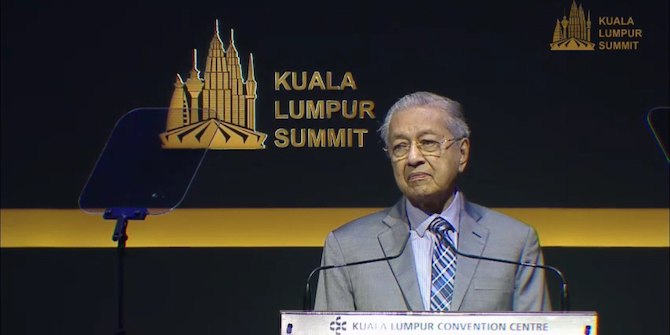by Ferhat Gurini

With the advent of the protests that swept the Arab world in 2011, Turkey saw its chance to become the region’s new religious and cultural powerhouse leading the way in the name of moderate Islam. Fast-forward to November 2016, and Turkey now borders two countries plagued by civil wars, hosts the highest number of refugees in the world and finds itself, once again, in open domestic conflict with Kurdish insurgents. This has led Turkey to recalibrate its foreign policy objectives, based on geographical proximity and vital security interests, which Operation Euphrates Shield and the dispute over the Bashiqa camp clearly demonstrate.
Turkey, a country praised for fusing Islam and democracy, had seen some of the world’s highest continuous growth rates and was widely perceived to be a key link between the Arab world and Europe before the Arab spring. This altered the Turkish self-perception and led to a more proactive, but also more ambitious, foreign policy stance, that threatened the regional status quo, and ended up leaving Turkey isolated.
Today, following years of declining economic performance, waves of terror attacks, increased violence within and on its borders and an unpredictable geopolitical environment, Turkey has started seeking reconciliation.
The entire focus of the warming of relations with regional actors has been to look at common struggle and interests, rather than differences, even though these still persist. Put very simply, Ankara has toned down its principles and values and turned up its pragmatism a notch. This does not mean, that the underlying ambitions of becoming a regional leader have vanished. The AKP government has just put them on hold to focus on what they perceive as more pressing matters.
Operation Euphrates Shield and the dispute over Turkish military presence in Bashiqa represent a new level of assertiveness in Turkish foreign policy. They are both breaches of sovereignty for Syria and Iraq, with Turkish boots on the ground. Put in perspective, except for the shooting of the Russian jet, Turkish strained relationships with all other countries were based on political disagreements and war of words over support of proxies or contested political entities – they were never caused by actual Turkish intervention or military action.
Not only has Turkey, through Euphrates Shield, now secured the strategically important Azaz–Jarablus corridor, formerly a logistic lifeline for rebels in Aleppo, but it has also created a de facto safe haven for the FSA and a buffer zone to take in refugees and rid IS of its borders. More importantly, it has put a geographical wedge between the cantons of the PYD’s Rojava state project in Northern Syria, and hindered its expansion.
In Bashiqa, Turkey now has an effective leverage to bargain with the Iraqi central government over the aftermath of the Mosul liberation. Equally important, is Turkey’s attempt at keeping the PKK out of the Mosul operations, so that the group will not cement itself further in Iraq, as it has now accomplished in Sinjar.
However, Turkey’s more determined foreign policy in Syria and Iraq has not received applause from the two countries’ central governments. In Baghdad, prime minister Haidar al-Abadi said Iraq was ready for war. And in Damascus, threats of shooting down Turkish jets, led to a halt in Turkish airstrikes against Kurdish insurgents in Northern Syria.
The Iraqi government knows very well that Turkey’s main area of interest in Iraq is maintaining its relationship and energy routes with the KRG while hindering the expansion of the PKK.
Where they are mainly at odds, apart from Turkey’s dealing with the KRG, is Turkish support for Sunni and Turkmen tribes in the Nineveh province, who hope for a slice of the cake in the aftermath of the Mosul operations. Again, Turkey’s expansion of its sphere of influence into Mosul is an ambition, but not a necessity. It is a pressure point the Turkish government can use to uphold its relationship with the KRG and expel the PKK – a bargain, Ankara hopes, the embattled central government of Iraq, will be contempt with.
As for the Syrian regime, it is currently in an unspoken, convenient alliance with the Kurds. This may change, if the regime aims for a total military victory. In this case, Ankara would have to abandon its support for the FSA, which would be a huge diplomatic backtrack for Turkey, who is currently housing the Syrian National Council in Istanbul. But would then, nonetheless, be rid of the SDF at its borders.
And this is how the Turkish government will pursue its foreign policy in the short-term – with fewer but more security-based interests, and with greater assertiveness. It will pinpoint traditional security threats and objectives, like hindering Kurdish state-formation, cementation its borders, and reducing refugee waves. At the regional level, Ankara will alter its until recently uncompromising and stubborn stance to one that is more compatible with regional powerbrokers to create a breathing space that allows it to focus on its core security interests.
Seeing that the momentum for leading the region in the name of moderate Islam has died out, Turkey will attempt to harmonise its long-term foreign policy to key regional states and take on the role of a mediator, rather than meddler. While at the same time reaching out to Muslim populations in the Balkans and Africa, as less complicated, and more economically driven, spheres of interest and influence.
 Ferhat Gurini studies International Relations at LSE. He has contributed to a range of Danish papers on Middle Eastern affairs, and is currently the Middle East editor of the Danish quarterly on international politics, RÆSON. He tweets @FerhatGurini.
Ferhat Gurini studies International Relations at LSE. He has contributed to a range of Danish papers on Middle Eastern affairs, and is currently the Middle East editor of the Danish quarterly on international politics, RÆSON. He tweets @FerhatGurini.







The reporter is living in a parallel world and must be Turkish to spout this nonsense.
Turkey is descending into the hell of Islamo-fascism and relations with all its neighbours are spiralling out of control, except for Iran of which it is afraid.
Turkey is fast losing its relations in the Balkan.
Turkey’s economy has been downsizing for the last years in $ terms.
Turkey is not contributing towards peace and prosperity but towards war.